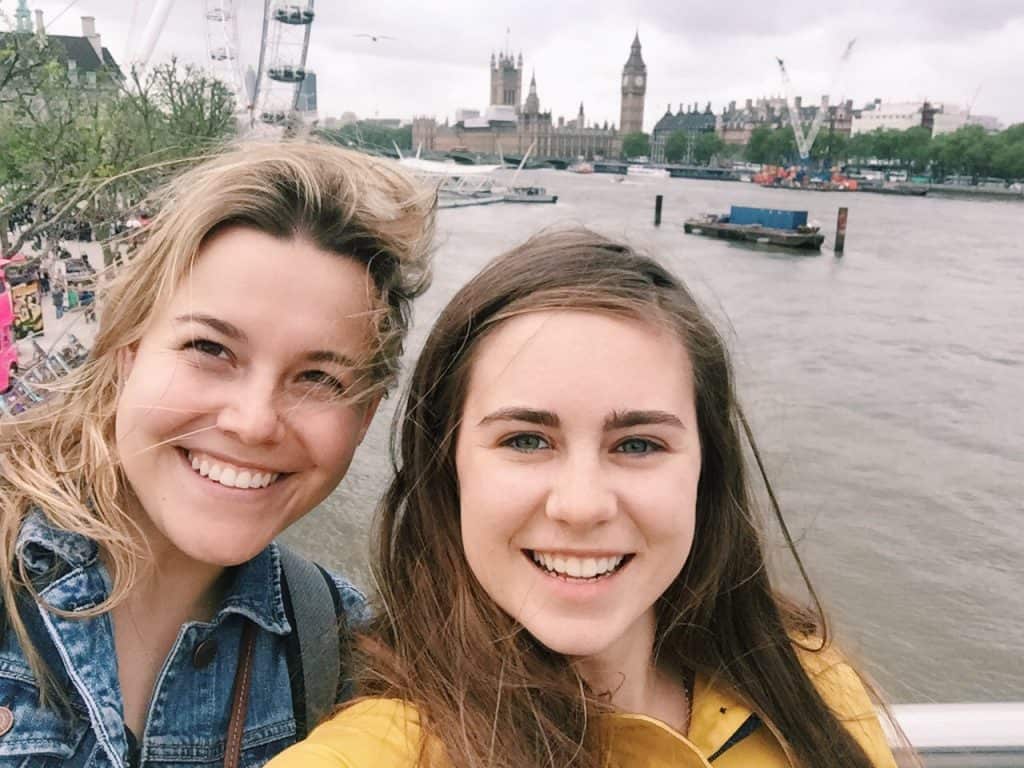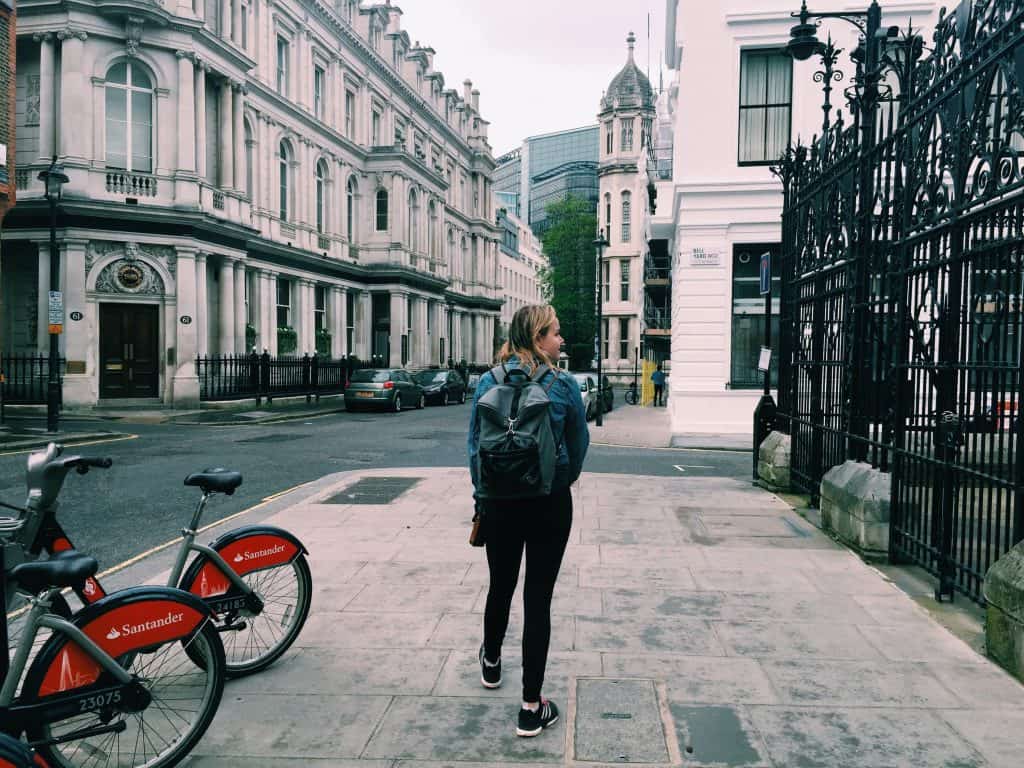10 Super Practical Tips for Expats to Make Your Move Abroad Easier
It feels strange to longer be an “expat,” but in some ways I think I will always identify as an expat. Take, for example, how I perk up when anyone mentions they are planning their own move abroad. I love to give advice, hence the blog (or maybe this is one of those chicken and egg situations?), so I’ve been gradually compiling a list of practical tips for expats in my head.
Add into the equation that one of my best friends from growing up in Michigan is imminently moving to Australia, and my head has really been buzzing with ideas. Over brunch the other day, Sydney (my friend) mentioned to me how she is wiring her money to her new Australian bank account, and all of a sudden all these alarms started going off in my brain. Like, Inside Out style. Imagine little Mindy Kaling-voiced elves storming through my frontal lobe with “practical tips for expats” files under their arms.
This post of practical tips for expats is for my soon-to-be expat friend, and any other readers who are moving abroad! Even if you’ve lived abroad for a while, you may find some of these tips useful. And of course, I know a lot of people who read this blog are expats so I would love if you commented with your own special tips… we can make this into a resource for Sydney, and any other new expats out there! I want to keep this list super-practical, partly because I have a pragmatist’s brain, and partly because I think those wishy-washy advice columns on expat life are a-plenty already (*ahem* my own blog archives *ahem*), and also a little bit less generalizable. Everyone will adapt to expat life differently emotionally, but everyone still needs to be able to watch their favorite Netflix shows (read tip # 3 for that).
My Top 10 SUPER PRACTICAL Tips for Expats
1. SAVE BIG and transfer your money abroad with Transferwise
Expats lose out on so much money trying to move their bank accounts abroad. When you wire money abroad you are not getting the market exchange rate, but rather one that benefits your bank. You will also face large processing fees and waiting times. You will end up losing hundreds and hundreds of dollars by wiring your money. Cue Transferwise, which is a totally safe, super fast way to get your money that is up to 8x cheaper than banks. You get the market exchange rate and only a very small processing fee. I love that they have a price compare tool, and keep a record of all of your transactions. Not to mention that the user interface is so, so easy.
I spent a long time researching alternatives to wiring money abroad, and Transferwise always came out on top. I used them for three years and couldn’t recommend them more. You can set up your own account here.
2. Create a dedicated binder of visa/immigration items
Maybe this one seems obvious – but so obvious that you haven’t done it? DO IT. You’ll never know when you’ll need to have your visa or immigration paperwork checked, so buy a beautiful folder or binder for it, and give it a special spot in your new home abroad. Never forget where it is! I promise this will come in useful later, even if it’s years later when you are reapplying or applying for a new visa.
3. Use the Google Chrome extension Hola to watch your favorite TV shows
One of the greatest sadnesses of expat life, which new expats will soon discover, is that you can’t watch your favorite TV shows in your new country. Literally just when you need a bit of home comforts the universe regional IP addressing ruins it all. Don’t worry though, because all you need to do is download the Hola extension in a Google Chrome browser and set it to the correct countries.
Click here to download Hola, and watch a tutorial on how to download and use it here.
4. Set up a regular weekly time to call your family
Time differences and busy schedules can make it difficult to stay in touch with family, and scheduling these talks can actually end up becoming a major stressor. You may feel guilty for not calling your family, get sad and miss them when you can’t find a time to talk, or just feel stressed about always reorganizing your schedule or staying up til odd hours around calls. I found that if we tried to arrange our calls on a case-by-case basis, we would end up just not talking at all. Instead, my family decided to have a weekly Sunday chat, and we arranged our schedules around that rather than vice versa.
5. Incorporate a routine from your home country, as soon as you can
During my second move to England I had a bit of a rough transition – England was familiar from my study abroad experience, but I felt a lot more alone the second time around, maybe due to the comparisons I couldn’t help making to when I lived there in college. One thing that really helped me adjust was going to weekly yoga. Yoga was a huge part of my routine in the USA, and incorporating this familiar activity to my new life in England had so many benefits. I talk about how important this yoga class was to me in one of my first ever blog posts!
However, I’m not saying “go to yoga!!!” – instead just choose an important part of your routine in your home country (lifting weights at the gym, monthly manicures, meal planning, pottery classes, etc.) and incorporate this in your new country. Do it as soon as you can after you arrive. It’s not going to feel the same, but the routine + newness + familiarity will all combine to help your transition 🙂
6. Meet other expats and immigrants
Although you probably want to, and will, meet locals of the country you are moving to, I also can’t say how important it was for me to meet other expats and immigrants. I think this is especially important if you are moving on your own – without the support of a large study abroad program, family, friends, or work cohort from your home country. Having someone to commiserate with about culture shock, and compare home country customs with, can make all the difference.
Joining the international student society at my UK university was life changing, and I ended up visiting those new friends all around the world. I also found that reading blogs of other expats, regardless of what country they originated from/moved to, was helpful. Universal experiences, and all.
Lillian from The Smalls Abroad, who is an American living in Scotland, has used Meetup.com with success, and also recommends googling “Expat + Location + Blog” – which led to meeting her best friend in Scotland!
7. Invest in expensive home-ware belongings early on (YOU ARE WORTH IT)
When you know you are living in a foreign country for a finite amount of time (or have visa expiration dates looming), it can seem pointless to buy belongings, especially expensive ones. For me, it was a blender. I looked at this blender in the store for a year, wanting dem smoothies and soups, but also knowing that when I moved I’d never be able to take it with me. I am not alone in this indecision! For Rachel in Australia, it was a fancy desk chair. But… eventually I bought the blender. Rachel bought the desk chair. All I can say is that you will be that much happier once you assert that where you are is your home. You are worth it, and Ebay exists for good reason. I just wish that I had bought the damn blender earlier!
8. Embrace your new healthcare system
Subpoint: Get your long-term birth control in a country with a socialized healthcare system
For a long time when I first moved to England, I shied away from the National Healthcare System (NHS). I didn’t even register with a doctor in England for, like, six months (DON’T DO THIS). I think I did this because 1) I didn’t want to spend the energy figuring out how to navigate a new healthcare system as a patient, and 2) I had succumbed to the classic American story that the way we do it is best. Fast forward a year, and I was having regular doctors appointments, had medications on prescription, had a new long-term birth control that would have cost me hundreds in the USA, and even had a wrist surgery free of charge. I grew to love the NHS, despite its flaws, and truly expanded my blinkered view that privatized healthcare is best.
In short, here is my healthcare advice:
- Get 90-day prescriptions of your meds before moving abroad, get signed letters from your doctors stating your prescriptions
- Register with a doctor immediately upon your move, and register your prescriptions with them
- Plan any generic treatments, such as long-term birth control like IUDs or implants, based on which country (the one you are leaving or moving to) has a socialized healthcare system
https://www.instagram.com/p/BQV3NZGhpCx/?taken-by=endlessdistances
9. You can ship your suitcase abroad to save money
I moved abroad with just my airplane luggage, but if you are moving abroad with more than you can carry (or if you accumulate more than you carry and somehow have to get it back to your home country *ahem* me *ahem*)… I recommend Transglobal Express, or another freight carrier shipping company. Rachel mentioned that Send My Bag is a great one to ship to Australia. You just pack your suitcase (or any big box, although I think the suitcase option is nice!), weigh and measure it, and put in your information with Transglobal Express. This is so much more economical than bringing your box to the post office (trust me, I’ve tried it both ways. Would not recommend.). It’s also super easy as they provide door-to-door delivery.
10. Be critical of the term expat
And finally, after using the term dozens of times in this post, I want to encourage new expats to be critical of when and why you use the term “expat.” There is a lot of justified critique about “expat” being the term of choice for white, socioeconomically advantaged people to describe their moves abroad. As Amanda from Rhyme and Ribbons puts it:
Skilled workers get to be “expats” whilst lower income position workers are “immigrants.”
I think these associations are an underlying reason that the term refugee is often conflated with economic migrant, which has caused its own milieu of social problems and misinformation.
For me, “expat” refers to a subset of people who have moved abroad for a defined period of time, whether for study or work, but will ultimately, for reasons of their own or for visas, have to move back to their home country. “Immigrant” defines the subset of people who move abroad under indefinite leave-to-remain visas, or who do not need visas but envision this as a permanent move. So if you are only planning to live in your new country for a defined period of time, or if your visa only covers a defined period of time, I think it is appropriate to call yourself an expat. Just make sure you think about why!

There ya go! I hope my super practical tips for expats are helpful – and if you are an expat and have any of your own trial-and-error discoveries, please comment below and share!
Sarah xx
Pin it for later…
**Some of the links in this post are affiliate links! I have only linked and recommended the items which I truly do use and recommend 🙂 Affiliate links are no extra charge for you, but when you purchase something through one of my links, I will receive a small commission which helps with the running costs of this blog.
**Many of the photos in this post are from when Sydney and two other long-time BFFs visited me in England 🙂 You can read the post on our hiking adventure here.










I think all of these tips are really good – for anyone looking at spending any extended time abroad. I’d love to see a post with your thoughts on healthcare before/now… and I really appreciate your comments about immigrant vs. refugee vs. expat. That’s a whole different discussion and debate, lol.
That’s true! Even just for a long trip abroad I think some of these things can be helpful! That’s a really interesting idea about the healthcare post, Sara… I have a lot of thoughts on the topic, especially after getting my MSc in a healthcare field and working in the NHS whilst I was there. The wheels are turning!
great tips – just checking out Hola now. With regards to meeting people I’ve used Meetup.com and have contacted the local Association of American Women. I also google “Expat + Location + blog” and then randomly contact the person! That’s led to my best friend here in my new country. #wanderfulwednesday
Ahhh you’re gonna love Hola if you haven’t used it before!! It doesn’t always work 100% but for me usually if I click “it’s not working” then once it reloads it works the second time around! Also that’s good advice for meeting people – I was lucky being at a University because it was relatively easy to meet people through clubs that were already set up. I am going to add your advice to the blog post!
These are great great tips! 😀 I love Hola but it recently won’t let me watch BBC, which is a fail! And oh how I miss the free NHS so much, I find it so strange that I have to pay for the doctor now.
I find the term expat very hard and I never ever refer to myself as one, though there is nothing wrong with those who do. I mean, I moved abroad to continue my life with Carlos and we have no idea how long we’ll stay in Chile, so I prefer to say that I “live abroad”, I feel at peace with saying that as I don’t feel it creates so many boundaries, that don’t need to be there.
Ahhh yeah sometimes Hola is a little finicky… it stopped working with Netflix for a few months which was heartbreaking lol. Does Chile have a more privatized healthcare system too then? I didn’t know that!
Yeah I definitely can see your point of view! I think if I had been staying in the UK on a different visa, or planned on staying there indefinitely I would have had to rethink my word choice. As it is, if I move back to the UK at any point I will be thinking long and hard about what I refer to myself as!
Yes to embracing the healthcare system. I was treated for a tropical disease in the Philippines including prescription meds for around $18. 🙂
Sarah, I appreciate your thoughts on the term ‘expat.’ I haven’t moved anywhere; I’m more of a digital nomad. But it seems like people from Europe/North America/Australia get called expat, while others get called immigrants, even when moving for the same reasons. I try to interchange the terms to be mindful not to elevate one over the other.
Happy travels!
Ahh that’s pretty amazing! (And glad you are okay now, haha!)
Yes it’s definitely an interesting conversation, and one that I’m glad to join in on because for a while there I wasn’t even aware of the underlying socioeconomic and race factors behind the term! I am definitely trying to interchange the terms more, now, although I did have an interesting conversation with someone yesterday who said she mainly uses the term “expat” from a branding perspective – as people are more likely to google “expat blog” than “immigrant blog”- which is an interesting point.
Man I wish I was an expat lol. Maybe one of these days. There was a job opening in my company for pretty much my current position but in London and I thought long and hard about it lol. But honestly, this is a great list for any new expat! I can only imagine all the questions they might have!
Ahhhh Christine that would’ve been amazing! Maybe someday this list will come in handy for you 😛
Good tips for anyone planning to live away from home for an extended period. I appreciate the thought on the usage of the word expat 🙂
#wanderfulwednesday
Thanks Neha!
Ahhhaha the chair! Breaking chair update: I am just waiting for my physio to approved it and then that darned chair will be mine! I couldn’t agree more though. If something has a significant impact on your health and/or wellbeing, it is worth investing in.
Basically I agree on the whole list, we used a different money transfer service as it gave a better rate, but as always do your Googling wisely. I used sendmybag.com or something to ship my suitcase, so much quicker and cheaper than airmail. And way less hassle. Just be aware of restrictions on things you can’t send unaccompanied which can vary by country (although it’s mostly just no liquids or batteries).
Shamefully I hadn’t really thought through the whole expat/immigrant/refugee thing. That has definitely given me food for thought and I’m going to be much more conscious about how I use those terms from now on.
Yay!!!! Chair update much appreciated 😛
I’m going to add your sendmybag.com suggestion to the post as that might be a better option for Australia, which will come in handy for Sydney!
And yeah – it’s something that didn’t really occur to me for a long time, only until a year ago really. But I do still think that expat is an appropriate term for people on short term visas like I was on, and like you are currently on. If I was to go back to the UK under a different visa with the goal to get an indefinite leave to remain visa… then I would probably change my terminology. But as Kylie from Between England & Iowa mentioned to me on Instagram yesterday, “expat” is more of a branded term… people google “expat blog” and that’s kind of the recognized term in the blogging field. Which may be problematic on its own – but definitely an interesting point!
These are such great tips! I haven’t heard of Hola but we watch a lot of shoes with Hulu. Might have to give Hola a try! Like the idea of buying an expensive item! When I studied abroad I never bought anything but cheap stuff and when I moved abroad it took me a good 6 months to make my first investment in a futon bc friends were coming for a visit! So it was definitely worth it! #WanderfulWednesday
Yeah I’ve used Hola with Hulu before – give it a try!
This is such a great list! For some reason I’ve never tried Hola even though I’ve heard it’s great. We use a DNS code from UnblockUs on our Apple TV and that works for everything but Netflix ??♀️. The expensive item is such a good point. We didn’t want to spend a lot on anything when we first moved here, but now it’s been almost four years and we’ve either had to replace or said items or just wish we would have spent a bit more.
And from an American in Australia, I’m sure your friend will love it here!
Ooh that’s interesting – I’m really not very technologically savvy so I’ve never heard of doing it that way before! But Hola is great for watching things from your laptop! There was a period where it didn’t work with Netflix but I believe it is back to working with Netflix now!
Fabulous tips – I was nodding my head at so many of them! Definitely healthcare, particularly in the UK – and also the investing in homewares! But most of all your point about incorporating some part of your “old” routine into the new – even if that’s just a weekend coffee and walk. Like the others, I really appreciate you highlighting your thoughts on the expat v immigrant wording… so important to think about the reasons we use words. Great post!
Yeah I found that to be the most helpful for me to! Life literally transformed once I started going to yoga regularly in England 🙂
Excellent tips! Keeping routine is so helpful, definitely second that. I wish someone had told me the homewares one… we’ve already had to throw out one pan from Wilko that somehow warped beyond use and the first hairdryer I picked up from TKMaxx EXPLODED a couple months in. We expats are worth more than an exploding discount hairdryer!! Haha
Ohh, Wilko 😛 I have to say I did buy a lot of stuff from Wilko, you get a good deal there. But certain things are worth a better investment. I hope nobody was hurt in the hairdryer incident, hahah
YOU BEAUTY!!!! 😉
I always appreciate your sage advice, but it means the world to me to see it laid out in blog format. I’m getting on #2 ASAP! (You were right about it being so obvious I hadn’t done it yet…) Thank you!
Hehehe any time <3
OMG. This post is everything. I thought you would include the typical advice but instead, you went really specific with tons of helpful things that I have NEVER thought of. (like Hola! and Send my bag! Wow!)
Regarding #6 – I did this right away and am glad because I definitely lost steam to make new friends after about year 3. So many people were here only temporarily and it was hard to get the ire up to make a friend who will just leave in a year. #7 – OMG YES. It was so hard as I was/am such a minimalist but I never regret buying that blender for a single day. Would also recommend cooking/baking implements too, like measuring cups, spoons, rolling pin, etc. And #8, big time. Socialized healthcare is so much better/cheaper than our American equivalent. Thank goodness!
Ahhh I’m so glad even a seasoned expat like you found it useful!! Yeah I am a bit over the more traditional moving abroad tips blog posts…. maybe because I have read so many! But I am just not about wishy washy advice that I could’ve used common sense to think of myself! So I hope you find some of those more specific things like Hola and Transferwise useful!!
And yeah baking implements is a huge thing! I should probably add that actually! Like, I put off buying cupboard spices for sooo long, and when I finally did it opened up my cooking repertoire so much.
There are some really great tips on here! x
Thanks Amanda – appreciate your words of wisdom for #10!
I’m not an expat (yet… maybe someday I’ll be ready to move to some country), but a thought a lot of these are good info to know for me too! I didn’t know about that extension that allows you to watch shows! The longest I stayed in one place at once for traveling is a few months at a stretch in KL, and I so agree that it’s so important to make some friends. I didn’t for the first few months and I felt so lonely and isolated. I haven’t tried meetup in other countries yet, but it seems worth a shot!
Yeah someone else mentioned that too – that even for longterm travel some of these tips are helpful 🙂 Especially if it enables Netflix addictions hahah.
I definitely agree about the last one, to me studying abroad isn’t immigration, so I don’t agree with putting everyone in the same bag. I think I went from expat to immigrant when I decided (read: was allowed) to stay here long term. I definitely think meeting fellow foreigners definitely helps as well – I’m dating a Brit and he sometimes takes it negatively when I criticise the country, but at least with immigrant friends we can discuss in peace as we understand each other. And I definitely agree about the NHS, omg I didn’t use it for like my first 3 years here, until I realised that in Scotland prescriptions are free, off to the doctors I went!